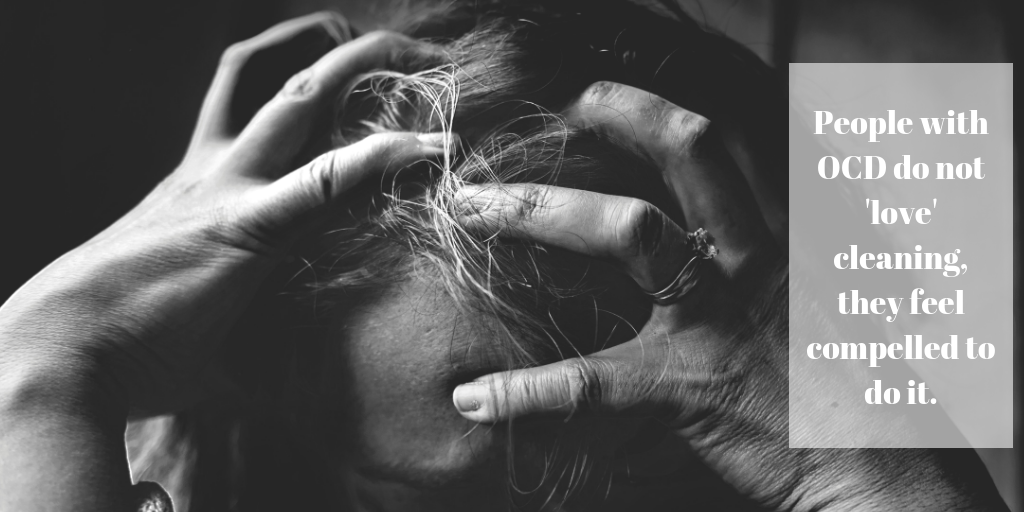Obsessive Compulsive Disorder (OCD) can affect men, women and children of all ages. The condition may develop early in childhood but typically develops during early adulthood. OCD can interfere with day to day life on a significant level, though there are treatments available that can help to keep symptoms under control.
Causes of Obsessive Compulsive Disorder:
There is no exact cause of OCD, but there are some factors which may contribute towards its development.
- Family history – If a family member has Obsessive Compulsive Disorder, you may be of higher risk of developing the condition yourself. Especially if that family member is a parent or sibling.
- Differences in the brain – Some people with OCD have areas of unusually high activity in their brain or low levels of a chemical known as serotonin.
- Life events – the development of OCD may be more common for people who have experienced traumatic life events such as bullying, abuse (emotional and/or physical), sexual abuse or the loss of a loved one. It may also develop after experiencing important life events such as getting married, having a child, starting a new job or moving house.
- Certain personality traits – neat, meticulous, methodical people with high personal standards may be more likely to develop OCD or have a very strong sense of responsibility for themselves and/or others.
Symptoms of Obsessive Compulsive Disorder:
If you have OCD, you’ll usually experience frequent obsessive thoughts and compulsive behaviours. But what does that mean?
Obsessive thoughts are persistent thoughts, pictures, urges or doubts that appear in your mind over and over again. These are likely to interrupt your thoughts against control. This can be frightening, graphic and disturbing. These thoughts can come in many different forms meaning that people are likely to have different experiences with OCD. Some people have obsessive thoughts and fears about causing harm to others around them, worrying that they have already hurt someone or fearing that they might do so in the future. Another form of obsessions is fearing contamination. This is when the individual worries about the spreading of germs and disease. They may also feel as though they are internally uncleanly, this could come as a result of being verbally abused by others, making them feel dirty. Some people may have violent or abusive thoughts about themselves being violent towards others. These thoughts can be extremely intrusive and could also include religious thoughts or negative thoughts about their relationship. Some forms of OCD come with thoughts related to order and/or symmetry leaving the person believing that something bad will happen if things are not ‘right’.
Some thoughts may be of a sexual nature; this may include having thoughts about children and/or family members. This can make the individual feel very unsettled and can make them believe that they are a bad person. This can have a large impact on the individuals day-to-day life and may lead to them avoiding contact with family members.
It is important to remember that people do not choose to have such thoughts and they are not a reflection of their personality.
Compulsive behaviours are repetitive behaviours or a mental act that the individual feels they need to do in order to bring temporary relief from the unpleasant feelings that are caused by obsessive thoughts. For example, someone experiencing obsessive thoughts about being burgled may feel the urge to check all of the doors and windows several times to make sure that they are locked and secure before leaving the house or going to bed.
It is important to know that not all obsessive thoughts are acted upon.
Getting Help For Obsessive Compulsive Disorder:
There are many people with OCD who are reluctant to ask for help out of embarrassment. However, having Obsessive Compulsive Disorder is nothing to be ashamed of, it is an illness.
There are two main ways to seek help:
- You could refer yourself directly to a psychological therapist.
- Or you could visit your GP – they will ask you for details in regards to your symptoms and will refer you to a local psychological therapy service as necessary and/or provide you with medication.
OCD is unlikely to get any better without proper treatment and support: so if you think you may have the condition, please seek help as soon as possible and know that it is okay to ask for support and guidance.
Treatments: There are some effective treatments for OCD that can help to reduce the symptoms of the condition and the impact that it has on the individual’s life.
The main forms of treatment include psychological therapies such as Cognitive Behavioural Therapy (CBT), which aims to look at the individual’s thought patterns and see if there are ways to adjust their thought process and lessen the impact that obsessive thoughts have over the person. The other way of treating OCD is through medications such as antidepressants. These can help to alter the chemical balance in the person’s brain, making them feel happier and less anxious.
CBT can be effective fairly quickly, whereas the use of medication may take a little bit longer before seeing/feeling any different.
In some cases, the individual may be offered a combination of therapy and medication and depending on the severity of their symptoms, they may also be referred to a mental health specialist for further treatment.
There is also a wide range of support groups available for people with OCD. It can be beneficial for the individual to talk to others who are experiencing similar symptoms and who are going through the same process as they are.
There are various types of OCD, so if you do not fit in entirely with the symptoms written about in this article, please still speak to your GP as you could still have the condition.
Sources:
NHS – Obsessive Compulsive Disorder


